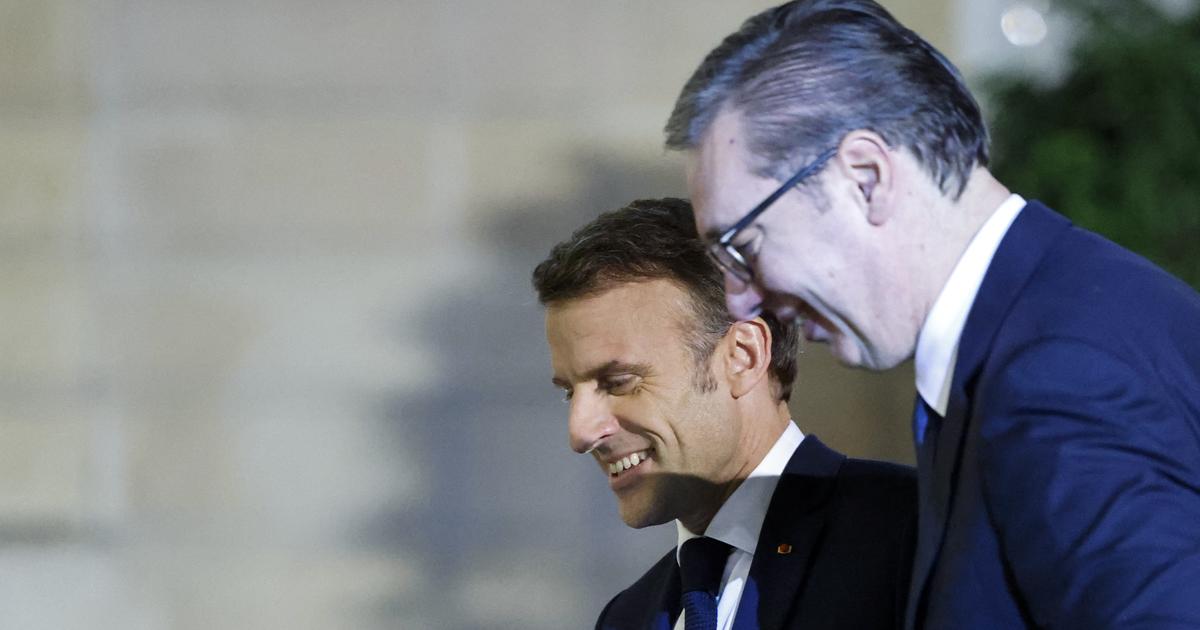NATO has urged Kosovo on Saturday to reduce tensions, a day after the government in Pristina forcibly entered official buildings in the north of the country (where a large number of people from the Serb minority live) to install ethnic Albanian mayors. The United States, France, Germany and the United Kingdom have also warned of the escalation in the area and have called for "restraint" and avoid "inflammatory rhetoric" to Kosovo and Serbia, which has raised the alert level of its Armed Forces on the border. In recent days, there have been clashes between Kosovar police and protesters from the Serb minority in the border town of Zvecan – where a dozen people have been injured – and there have also been attacks on the European Union mission in Kosovo (Eulex), according to a statement from the four countries. NATO is keeping its peacekeeping mission in the area, where it has some 3,800 people stationed, on alert.
The situation is still very tense in the north of the country, where heavily armed police in armored vehicles stand guard outside municipal buildings, according to Reuters. The incidents in Zvecan (population 7,300) occurred when Kosovar officers attempted to help the newly elected ethnic Albanian mayor gain access to the town hall. Police used tear gas to disperse protesters and gunshots and explosions could be heard in videos posted online and picked up by the BBC. The Serb community, majority in that territory although it only represents 5% of the 1.8 million inhabitants of Kosovo, does not recognize the authority of the councilor of Zvecan and two other municipalities, Leposavic and Zubin Potok, elected in elections with a 3.4% participation by the boycott of the Serb population backed by the Government of Belgrade.
Local officials in Zvecan said five officers were injured and at least four vehicles were damaged during the unrest. Kosovo's Prime Minister Albin Kurti has defended the police's actions in escorting the new mayors. "It is the right of those elected in democratic elections to take office without threats or intimidation. Citizens also have the right to be served by those elected officials," Kurti said on Twitter on Saturday.
Kosovo unilaterally declared independence from Serbia in February 2008 and nearly a decade after the end of the war, the Serb minority in the north of the country still regards Belgrade as its capital. The United States and the main EU countries (not Spain) recognize Kosovo as an independent country.
In Serbia, Defense Minister Milos Vucevic said Kosovo was acting to "terrorize" the Serb minority and described the situation as "very difficult." Instability in northern Kosovo has been at an all-time high in recent times and despite attempts at mediation by the European Union. This Saturday, Russia, which supports its ally Serbia, with which it maintains ties, has blamed Kosovo, the United States and the EU for what it has considered a "provocative maneuver" by Pristina that "threatens the security of the Balkans".
U.S. Secretary of State Antony Blinken on Friday criticized Kurti's government for its actions in the north of the country, saying: "It has unnecessarily escalated tensions, undermining our efforts to normalize relations between Kosovo and Serbia and that will have consequences on our bilateral relationship with Kosovo."
The new unrest in Kosovo coincides with the internal problems of Serbian President Aleksandar Vucic, who called for a demonstration in Belgrade on Friday to counter the mobilizations unleashed in the country after two mass killings at the hands of a 13-year-old teenager in a school, who killed 13 minors and a guard on May 3. and a 21-year-old man who shot and killed 8 people two days later. On Saturday, Vucic submitted his resignation as leader of the ruling Progressive Party (SNS) after weeks of protests against his government, but said he would remain as head of state, Reuters reports. At a party congress in Kragujevac, central Serbia, Vucic appointed Defense Minister Milos Vucevic to replace him as party leader.
Follow all the international information on Facebook and Twitter, or in our weekly newsletter.
75% discount
Subscribe to continue reading
Read without limits
Read more
I'm already a subscriber

/cloudfront-eu-central-1.images.arcpublishing.com/prisa/AEP3T3VC4SOIAXLWE4WMAFAEQM.jpg)




